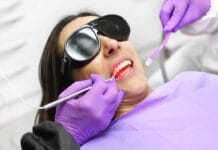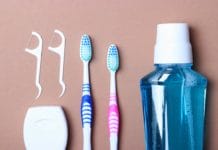With spring in full swing, many dental hygiene students have graduated and are beginning their careers. Here are 11 helpful reminders and tips for students and new grads about the profession they are joining.
1) The value of education
Dental hygiene school is just the beginning. Your learning does not stop after graduating. I was told this when I was about to graduate, and it is true! When I reflect back from then to where I am now, wow, there has been a lot! There will be twists and turns in terms of what your career will bring. Everyone’s will be different.
Continue to learn and grow. Being a lifelong learner will not only benefit you but your patients. You stop your growth if you close yourself off to new information, such as research, techniques, protocols, products, or ideas. Dentistry is constantly changing and evolving. What you learned in dental hygiene school five years ago may not be the best practice or current protocol anymore.
You always have your education, and no one can take that away from you, but you can also further your education with additional degrees. The dental hygiene field does not limit or confine you to only clinical dental hygiene.
When I was in hygiene school, I knew I wanted to continue my education to get at least a bachelor’s degree. I saw this as a safety net just in case something happened, such as an injury. Earning additional degrees can open doors to opportunities outside of the operatory as well, such as being an educator, sales representative, or administrator, just to name a few.
2) Know your standards and worth
Do not let anyone, including patients, lower your standards. For example, a patient presents with active periodontitis and only wants a “regular cleaning.” Big red flag! First, you did not put in a ton of effort for years in dental hygiene school and pass boards to complete only “dental cleanings” or just “prophylaxes.” You are a practitioner and health care provider.
I digress. Second, you know that this patient needs more involved care than a six-month preventive hygiene treatment.
3) There will be challenging conversations throughout your career
Challenging conversations may involve speaking to a coworker, employer, or patient. When you first start, you may feel a little uncomfortable explaining periodontitis or speaking to an upset patient.
Another example might be challenging conversations with coworkers. It can be stressful if, during the work day, unintentional snappy comments between coworkers occur. After some time and both parties are calm, a conversation can properly take place. It can be uncomfortable during confrontations like these. It’s okay to feel this way.
It takes time and practice, and trust me, there will be plenty of opportunities to do so.
4) Your first job position does not have to be your last
Do what is best for you, which may also change over time. This brings us back to knowing your worth and abilities. For example, if your professional values do not align, leaving is okay.
Before you make any emotional or knee-jerk decisions, take the time to think everything out. Find a family member or friend to discuss your options or the pros and cons.
There are certain instances that you know you should remove yourself from right away, such as feeling uncomfortable or unsafe in an office. In other instances, you may want to think over your decision.
If you just started a job, it can be stressful as you get to know the office and routine. Give yourself a timeframe on how long you want to think it over. But remember, you are not stuck in any position.
5) Dental hygiene is not a factory, and a dental hygienist is not a robot
Dental hygiene is not a one-size-fits-all model. This means that every patient, treatment, recommendation, and recall is personalized, customized, and patient-specific. You are not a robot doing the same thing over and over again.
The expectation of treating an excessive amount of patients with abbreviated appointment times, especially without a dedicated assistant, is not ideal for you or your patients. Some would call this a ‘prophy mill.’ The practice of dental hygiene and patient care is not a factory.
6) Interviews are a two-way street
Going on my fair share of interviews, I have learned that I am interviewing the office more than the office is interviewing me. I have written previous articles about what to look for in offices, what questions to ask, and interviewing.
Some good questions I always like to ask are about the opportunity to shadow the office prior to starting a position, if there is room to grow in the office, and how much time is allotted with each type of patient appointment, such as an adult vs. child prophy or non-surgical periodontal therapy. I also ask questions about their office policies regarding patient care, such as the frequency of radiographs, as these will be very telling and can make or break my decision to move forward.
7) Frustrations can occur
You may get frustrated at running behind because your patient was late. You may get frustrated that the patient you have seen multiple times has not improved their home care. Try not to take it personally. It takes practice and time.
8) What you are feeling is normal
You will experience many emotions and feelings throughout your career because, at the end of the day, you are human. You are a person who is working hard and giving it your all. It can be stressful and overwhelming sometimes – everyone has felt that. We feel you!
9) We are not perfect
No one is perfect – we all make mistakes. You are new to the profession, so ask questions! I promise it does not mean you are weak or unintelligent. Employers admire you for taking the time to ask about something. You are learning, and they do not expect you to know absolutely everything when walking out of school (because you don’t).
Early in your career, you learn a lot chairside, such as patient rapport, communication skills, and improving your instrumentation. I refined my scaling skills at my first office and then improved my skills during the height of the COVID-19 pandemic.
10) Find a mentor
Finding a mentor does not have to be a big formal thing. A mentor could be a past faculty member or a coworker at your new office. This is an individual you trust and will guide you along the way. A mentor is also a person with whom you can ask questions or get advice about things such as treating a specific patient case or ways to improve your technique.
11) Take care of yourself
Take care of yourself physically and mentally. I know you heard this a ton in dental hygiene school. But it is true!
Maintaining proper ergonomics does not stop when you graduate. Be mindful of your surroundings, such as your operatory setup. Do you have adequate space to do your job safely and comfortably? Are you using good-quality instruments that aren’t overdue to be replaced?
In terms of mental health, are you giving yourself a break? Do things that you enjoy, and try not to bring work home with you, either. That part is tough sometimes, and it also takes practice.
In Closing
You have just accomplished a huge milestone in graduating from dental hygiene school. No more competencies, no more board exams! Take time to celebrate your success.
These reminders are just something to consider and think about when you are taking the next steps into the workplace. Dental hygiene has many opportunities to offer. Find your place in the profession – it is waiting for you. We welcome you!












